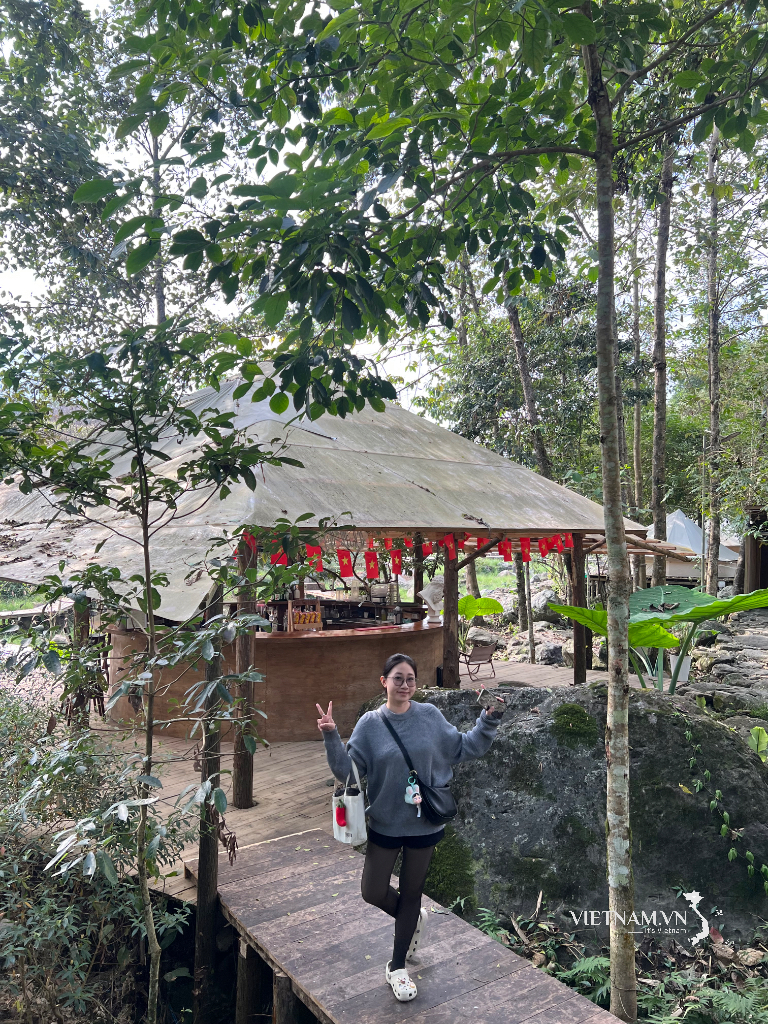Besides causing economic waste, uncontrolled food consumption habits also create serious environmental consequences.

According to a report from the Vietnam Food Bank Network, Vietnam ranks second in the Asia- Pacific region in food waste, with over 8 million tons of food thrown away annually, resulting in a loss of approximately US$3.9 billion, accounting for nearly 2% of its Gross Domestic Product (GDP). The survey also revealed that a large proportion of discarded food consists of rice, vermicelli, noodles, and pho (accounting for 68%), followed by processed meat and fish (53%) and vegetables (44%). These figures clearly reflect the shortcomings related to cooking and consumption habits in many Vietnamese families.
Ms. Nguyen Thanh Ha (from Bo De ward) shared: “My family usually cooks a lot because we're afraid of running out or to save some for those who come home late. Some days we can't finish it all, there's so much leftover food, we're tired of eating it again, but throwing it away feels wasteful.” This “preparatory” habit, like Ms. Ha's family, is not uncommon and is contributing to a huge amount of food waste every day.
While food waste due to cooking habits is significant in households, the situation is even more serious in restaurants and hotels, especially buffet-style establishments. Ms. Nguyen Huyen Le (from Dai Mo ward) stated: “Entering buffet restaurants, you often see diners scooping up all the meat, fish, and shrimp from the trays onto their plates, leaving a huge pile of food uneaten when they can't finish it all…”
The problem of food waste stems not only from consumer habits but also from weaknesses in agricultural production and preservation systems. Many farmers still cultivate using traditional methods and have not yet accessed modern preservation techniques. As a result, vegetables and fresh produce are easily spoiled during transportation and storage, causing significant losses for producers and wasting resources such as land, water, and labor.
Associate Professor Dr. Nguyen Duy Thinh, former staff member of the Institute of Biotechnology - Food Technology ( Hanoi University of Science and Technology), stated that discarded food not only causes economic waste but also poses a threat to the environment. Organic waste creates conditions for microorganisms to thrive, producing toxic substances, and black leachate seeps into the ground, polluting groundwater. The decomposition of food also produces methane gas - a greenhouse gas that is many times more dangerous than carbon monoxide (CO).
According to a report by the United Nations Environment Programme (UNEP), the world wastes approximately 1.3 billion tons of food each year, equivalent to one-third of global food production. Meanwhile, nearly 800 million people still live in poverty. Even more concerning, wasted food accounts for up to 8% of total greenhouse gas emissions, contributing significantly to climate change and the decline of global biodiversity.
Given this situation, experts believe that reducing food waste is a practical way to save money, protect the environment, and move towards sustainable development. Achieving this requires the joint efforts of all sectors of society. Each individual needs to change their consumption habits, such as planning meals rationally, buying only what they need, prioritizing the use of goods nearing their expiration date, reusing leftover food, and behaving responsibly when dining at parties and restaurants. Restaurants and hotels should establish portion control systems, utilize food management technology, or collaborate with charities to donate usable food to those in need. The government and businesses also need to invest in the preservation and transportation of agricultural products, supporting farmers in accessing new technologies to reduce losses from the production stage.
Every grain of rice, every vegetable... represents sweat, hard work, and precious resources. In a world increasingly vulnerable to natural disasters, poverty, and climate change, preventing food waste is no longer an option but a moral obligation and civic responsibility. Awareness today is the foundation for survival tomorrow.
Source: https://hanoimoi.vn/can-thay-doi-thoi-quen-su-dung-thuc-pham-707976.html















































































































Comment (0)